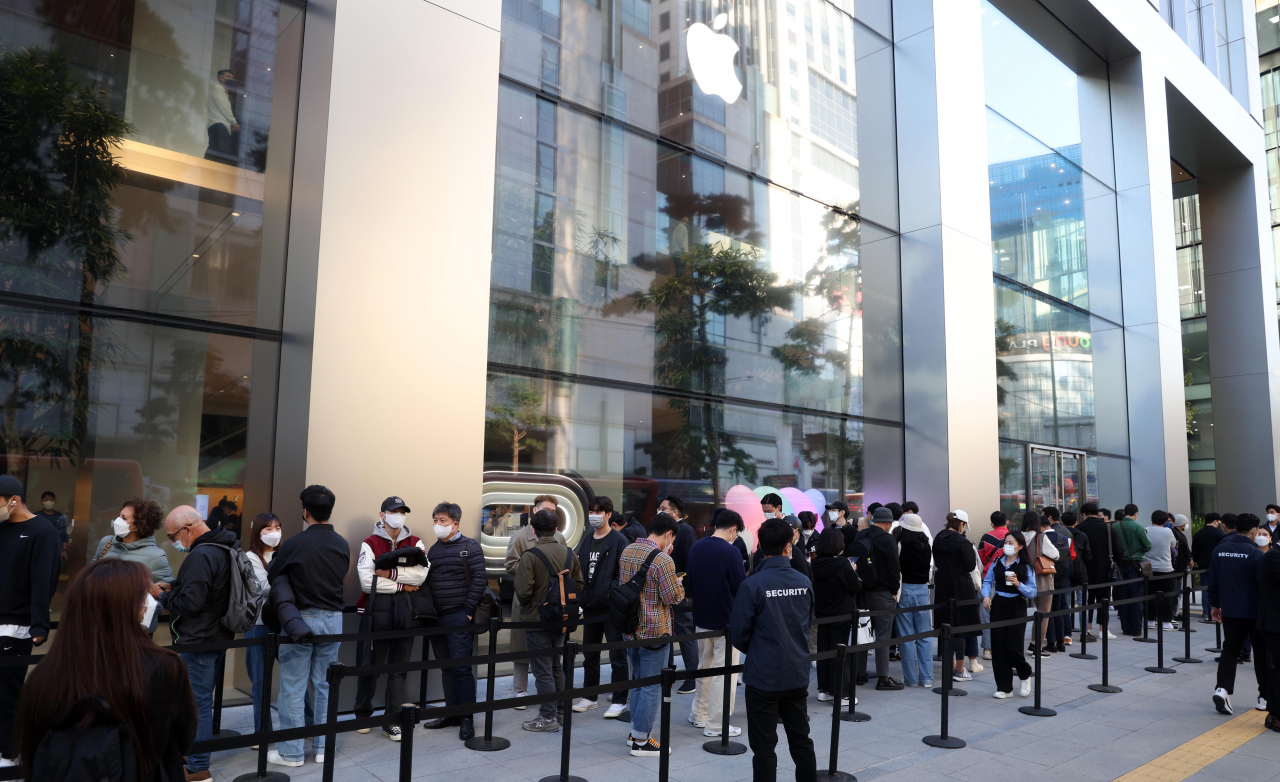Regulator looks into possibility of Apple Pay violating privacy law
Apple Pay's long-awaited debut may face further delays
By Song Seung-hyunPublished : Dec. 12, 2022 - 16:19

South Korea's financial regulator is reviewing the possibility of Apple Pay’s payment process violating a law to protect personal credit information, ahead of its launch in Korea.
This review came after the Financial Supervisory Service official said it has completed a review of Apple Pay’s terms and conditions last week.
When a purchase occurs in local stores using Apple Pay, the American tech company plans to adopt a payment processing method that approves the purchase via the overseas payment networks of its affiliates -- Visa and Mastercard.
This method is different from how Korean credit card companies and payment services use local payment networks. They use overseas payment networks only when the purchase occurs outside of Korea.
The authorities, in particular, have concerns over personal information being leaked to foreign networks through this payment process.
Credit card companies securing personal information has been a sensitive issue here since 2014 when massive information leak took place at credit card companies. Some 100 million clients' personal data, including bank account numbers, addresses and credit ratings, had been leaked from three card issuers -- KB Kookmin Card, NH Nonghyup Card, and Lotte Card.
According to industry sources, Apple Pay’s local partner Hyundai Card has been claiming that this would not be a problem since all the payment information is encrypted before being transmitted to foreign networks for approval.
The Korean card issuer also says that the encrypted purchase information does not contain clients’ personal identification information.
The Korean financial authority's review process adds a hurdle to Apple Pay entering the local market.
The payment firm already was expected to soon face obstacles to expansion here due to a lack of technological infrastructure.
According to industry insiders, less than 10 percent of 2.9 million retailers use near-field communication technology-based card readers in Korea.
This short-range wireless technology is necessary for customers to purchase with Apple Pay at local stores and installing a new card reader with such technology could be burdensome for local retailers.
The majority of local store owners now are using machines with magnetic secure transmission technology, in which devices such as smartphones emit a signal that mimics the magnetic stripe on a traditional payment card.
This means that even if the American payment system successfully launches in Korea with consent from the financial authorities, the users can only purchase from a limited number of large franchise outlets such as McDonald's, Starbucks, Ediya Coffee and Lotte Hi-Mart that have card readers using NFC technology.
The payment service’s local partner considered solving this issue by compensating retailers for installing a new NFC device, but this plan was put on hold as it could be subject to antitrust scrutiny, according to industry insiders.








![[Graphic News] More Koreans say they plan long-distance trips this year](http://res.heraldm.com/phpwas/restmb_idxmake.php?idx=644&simg=/content/image/2024/04/17/20240417050828_0.gif&u=)
![[KH Explains] Hyundai's full hybrid edge to pay off amid slow transition to pure EVs](http://res.heraldm.com/phpwas/restmb_idxmake.php?idx=644&simg=/content/image/2024/04/18/20240418050645_0.jpg&u=20240419100350)








![[KH Explains] Hyundai's full hybrid edge to pay off amid slow transition to pure EVs](http://res.heraldm.com/phpwas/restmb_idxmake.php?idx=652&simg=/content/image/2024/04/18/20240418050645_0.jpg&u=20240419100350)

![[Today’s K-pop] Illit drops debut single remix](http://res.heraldm.com/phpwas/restmb_idxmake.php?idx=642&simg=/content/image/2024/04/19/20240419050612_0.jpg&u=)